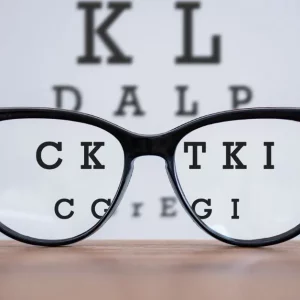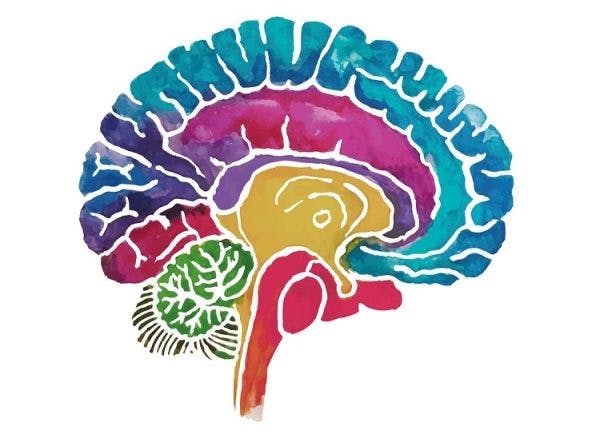A traumatic brain injury can affect your speech and language skills in various ways. For example, some individuals lose control of the muscles that make up the mouth while others may struggle to remember words. Luckily, many people learn to speak again after brain injury by working with a speech-language pathologist and practicing targeted exercises.
To help you understand how to improve speech and language skills following a brain injury, this article will discuss:
- How brain injury affects speech
- Is it possible to regain speech after brain injury?
- Best practices for learning to speak again after brain injury
How Brain Injury Affects Speech
Speech and language problems are just one of the many possible effects of traumatic brain injury.
If you have suffered a brain injury and have trouble speaking and forming words, this is most likely because your injury caused damage to the language centers of the brain. These are located in the dominant hemisphere, which for most people, is the left side of the brain.
There are 3 types of speech and language disorders you may experience after a brain injury: dysarthria, apraxia of speech, and aphasia.
Dysarthria refers to when the muscles used for speech are weakened or paralyzed, leading to slurred or mumbled speech. This is caused by damage to the part of the brain responsible for motor control of the muscles around your mouth such as the tongue.
Apraxia of speech describes when a person has trouble initiating and carrying out the movement patterns necessary to say words correctly, due to impaired coordination stemming from the brain. With apraxia, the muscles are not affected like they are with dysarthria. Instead, the brain pathways involved in planning the movements used in producing speech are affected.
Aphasia describes when a person has difficulty speaking fluently and/or understanding what others are saying. It differs from apraxia in that it’s not a problem with the movement patterns required to create speech; rather, it is more specific to cognitively retrieving and comprehending words. Individuals with aphasia may also struggle with reading and writing.
Now that you understand how speech can be affected following a brain injury, let’s discuss how the brain can recover speech and language skills.
Is it Possible to Regain Speech After Brain Injury?

Learning to speak again after brain injury is possible because of the brain’s natural ability to heal itself. This phenomenon is called neuroplasticity and it allows the brain to rewire its neural circuitry to make adaptive changes. As a result, nearly any function affected by brain injury (including speech) has the potential to be relearned and recovered.
Many brain injury survivors regain their ability to speak by promoting neuroplasticity. The most effective way to promote neuroplasticity is to continuously practice the exact skills you wish to improve. Consistent repetition stimulates the brain and reinforces demand for that function.
Therefore, in order to improve control of the oral muscles, individuals must practice moving them. Likewise, in order to improve speaking, individuals must practice saying words and forming sentences. The following section will further discuss how to improve speech after brain injury.
Best Practices for Learning to Speak Again After Brain Injury
Every brain injury and its recovery are unique. Therefore, a personalized approach to speech and language recovery is essential.
Speaking is a very complex activity that requires many different parts of the brain to work together. Besides being able to physically form the words with the muscles of your mouth, several other skills are involved, including:
- Memory and recall
- Listening
- Swallowing
- Breathing
- Comprehension
- Problem solving
Developing the many skills involved in the use of speech and language is critical for effective communication. Depending on what type of speech disorder you have, various interventions may be recommended.
Below, we’ll discuss some of the most effective ways to improve speech after a brain injury.
1) Work with a Speech-Language Pathologist
The first step to learning how to speak again after brain injury is to get evaluated by a speech-language pathologist (SLP). They will assess your speech functions, determine what type of speech disorder you have, and develop a personalized rehabilitation plan full of effective speech therapy exercises.
For example, when weak or uncoordinated muscles are part of the problem (such as in the case of dysarthria) an SLP may recommend oral-motor exercises such as blowing a whistle, yawning, or making popping noises with your lips.
In contrast, someone who experiences difficulties remembering words may practice identifying pictures or calling out words that belong in a certain category.
The key to regaining your speech is to practice speech therapy activities several times a day. As you continue to practice, you will stimulate the brain and promote neuroplasticity.
2) Participate in Singing Therapy
Research shows that “singing or intoning spoken words and phrases can help facilitate speech output in patients with non-fluent aphasia.”
This is because singing engages the right, more-creative side of the brain, whereas speaking utilizes the left side. Since most speaking disorders are caused by damage to the left side of the brain, the side that controls singing is left intact. As a result, even if you cannot speak, you probably can still sing.
Brain injury patients who have used singing therapy have shown great improvements in controlling their mouth movements and in sentence production.
3) Use Speech Therapy Apps

The key to learning how to speak again after brain injury is to practice as much as possible. While participating in speech therapy is effective, individuals also need to practice speech exercises at home to optimize their recovery.
An excellent way to do this is to download speech therapy apps onto your phone or tablet. For example, the CT Speech and Cognitive Therapy App includes over 100,000 exercises designed by speech-language pathologists. Its smart artificial intelligence (AI) technology optimizes the exercises to your ability level to personalize your recovery experience.
Speech therapy apps provide access to speech therapy exercises 24/7 so that you can practice at your convenience.
Learning to Speak Again After Brain Injury: Key Points
Recovering the ability to speak well is one of the most important steps in traumatic brain injury rehab programs. Speech is how we connect with each other and communicate our thoughts, feelings, and needs to others.
By using at-home speech therapy exercises, participating in singing therapy, and working with a speech pathologist to stimulate adaptive changes in the brain, there is hope for relearning how to speak again.
Hopefully, this article has shown you that not only is it possible to regain your speech but that if you work hard enough, you have a good chance at recovery.










